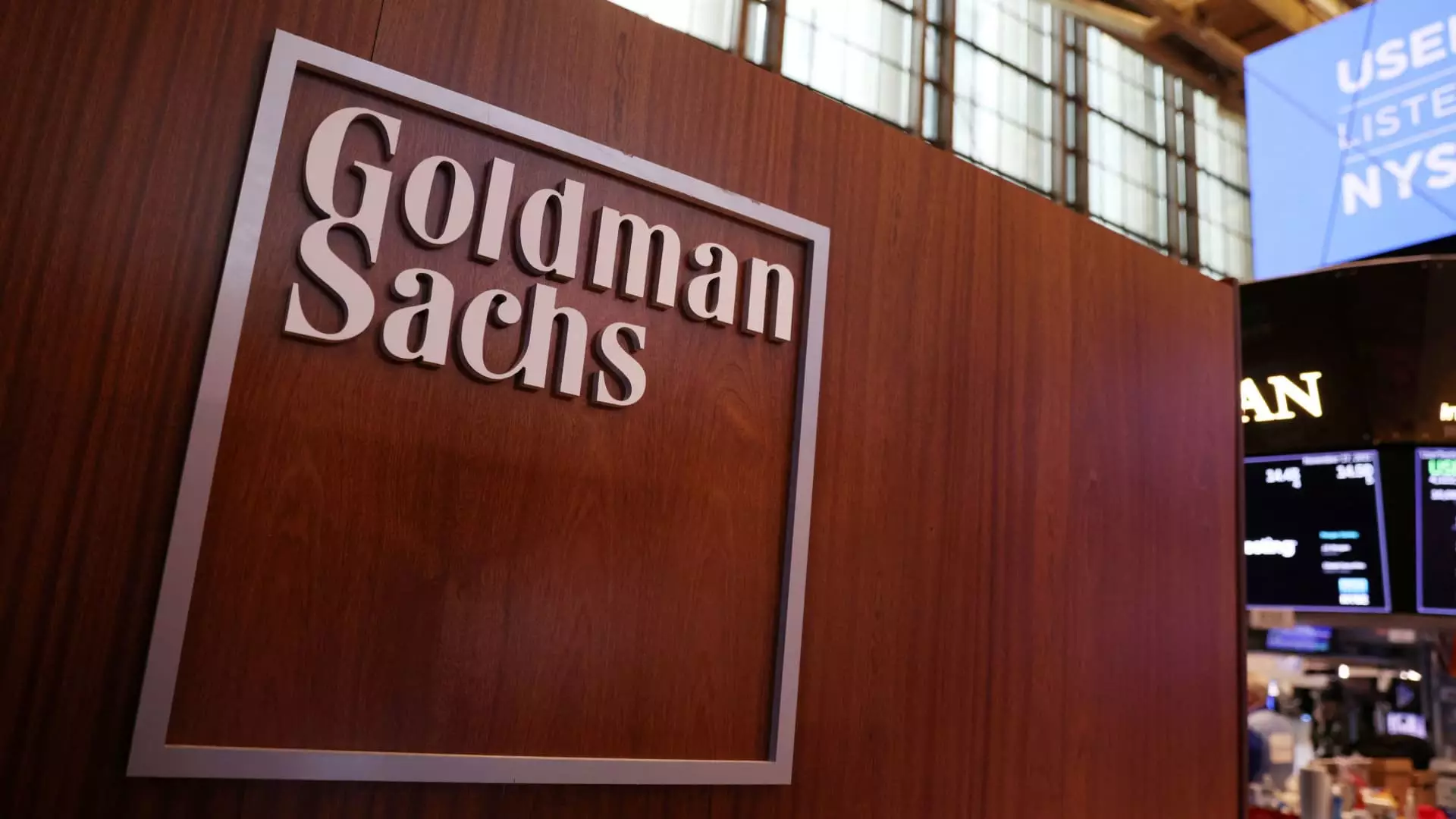The recent unveiling of a non-human employee—an AI-powered software engineer named Devin—at Goldman Sachs signals more than just technological progress; it exposes a profound shift in how corporations view human labor and innovation. While Goldman’s experiments may be presented as a step toward efficiency and productivity, they raise urgent questions about the future of meaningful employment and the dignity of human work. The narrative that AI will merely augment human capabilities is, at best, an overly optimistic spin that masks deeper concerns about job security and societal inequality.
Devin’s ability to perform complex, multi-step tasks traditionally handled by skilled programmers exemplifies a disturbing trend toward accelerating automation in critical sectors. This is not a humble assistant or a tool to support human workers, but a fully autonomous entity capable of executing sophisticated functions with minimal oversight. Such breakthroughs, while often celebrated in tech media, threaten to devalue the skills that have historically formed the backbone of economic stability—skills that are nurtured through education, experience, and human ingenuity. Instead of complementing human expertise, AI like Devin risks replacing it outright, reducing once-fulfilling careers to obsolete duties and leaving millions scrambling for work in a shrinking job market.
The Illusory Promise of Enhanced Productivity
Proponents tout AI’s potential to amplify productivity by three or four times, claiming that this will translate into economic growth and competitive advantage. But beneath this rhetoric lies a troubling reality: the pursuit of relentless efficiency often comes at the expense of workers’ well-being and societal cohesion. When automation replaces human labor, especially in high-skill roles, it exacerbates income inequality and consolidates power within a small elite that owns and controls these advanced technologies.
The narrative of “human-AI collaboration” conveniently glosses over the displacement of real people. Instead of creating new roles or fostering economic opportunities, companies like Goldman Sachs are focused on extracting maximum value from AI—often by cutting jobs or relegating workers to roles that involve supervising machines rather than engaging in meaningful problem-solving. This approach fosters a fragile workforce reduced to supervisors of autonomous systems rather than active participants in innovation and decision-making.
Moreover, the claim that AI will handle “drudgery” jobs misses the psychological toll of job loss and the erosion of human identity rooted in meaningful work. If machines begin to do most of the thinking and creating, what becomes of human purpose? History shows that technological revolutions often come with social upheaval, and the current wave of AI-driven automation threatens to perpetuate this cycle of inequality under the guise of progress.
The Politics of Automation: A Center-Left Perspective
Balancing technological advancement with social responsibility requires a nuanced, center-of-liberal approach that recognizes the importance of protecting workers’ rights and societal stability. While embracing innovation is essential for competitiveness, unchecked automation risks marginalizing a significant portion of the workforce, many of whom already face economic precarity.
A responsible path forward involves deliberately designing policies that ensure AI development complements human prosperity rather than undermines it. This entails investing in education and retraining programs to equip workers with new skills aligned with an evolving economy that recognizes and rewards human creativity, empathy, and critical thinking—qualities machines cannot replicate. Furthermore, broad-based social safety nets must be strengthened to support those displaced by automation, fostering a sustainable transition rather than a reckless pursuit of profit at the expense of social cohesion.
The narrative that AI will create new opportunities often ignores the reality that many workers lack access to quality retraining or live in regions where such opportunities are scarce. This digital divide risks transforming into a socio-economic chasm, further entrenching inequality and social division. A centered liberal stance advocates for policies that prioritize human dignity, job security, and fair distribution of technological benefits rather than unrestrained corporate greed.
Cautionary Reflections on the Speed of AI Adoption
The rapid deployment of AI in high-stakes environments like investing and banking hints at a dangerous overconfidence in technological solutions. While efficiency gains are tempting, history warns us that technology often outpaces societal readiness, leading to unforeseen consequences. Goldman Sachs’ rush to integrate Devin into its workforce exemplifies a broader trend: tech-driven optimism that neglects the human costs involved.
A critical perspective insists on slowing down this race—waiting for regulatory frameworks, social consensus, and ethical safeguards to catch up with technological capabilities. Otherwise, we risk creating a world where humans are increasingly marginalized in decision-making processes, with AI systems making critical choices without accountability or transparency. This threatens both democratic principles and the social fabric, which depend on human values, empathy, and oversight.
Ultimately, the current path forwards resembles a dangerous illusion of progress—ignoring the deeper societal implications of substituting human workers with autonomous systems. Innovation should serve as a tool to elevate society’s well-being, not as a pretext for unchecked corporate dominance and mass displacement. A responsible, humane approach to AI development requires scrutinizing its long-term impacts, prioritizing human rights, and ensuring that technological gains translate into genuine societal benefit rather than profit-driven austerity.

